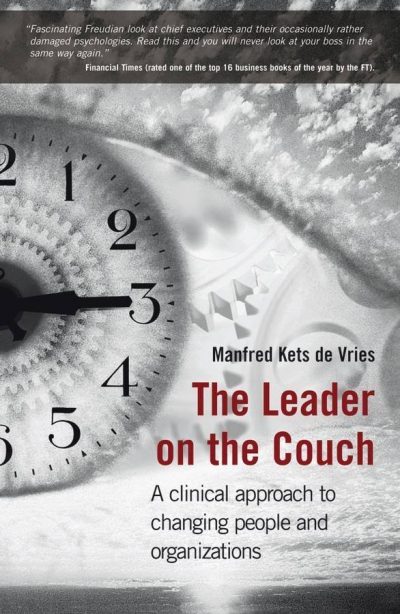Leadership Coaching: An Introduction
To really understand this topic, please move across to my other site www.LeadershipCoaching.com.au where this whole topic is dealt with in much more detail.
Irrespective, at this point, it is sufficient to say that Leadership Coaching is a collaborative, individualised relationship between a leader and the coach -- the leader could well be an executive, manager, supervisor or business owner for example. Regardless, it's a partnership -- the aim of which is to bring about sustained behavioural change and transform the quality of the leader's working and personal life.It could involve working with individuals or teams in executive or management positions.
But first, let's understand what leadership coaching is NOT:
- It isn't technical guidance although it's true to say that some coaches have a strong technical background.
- It isn't career counselling although many coaches certainly assist in helping leaders find the right fit and match for their talents and strengths.
- It isn't consulting (although the boundaries between coaching and consulting can often be blurred) where the consultant is really seen as the expert who comes in to solve a problem and give advice. Coaches on the other hand, prefer to ask questions and assist the leader to find their own solution.
- It isn't mentoring who is someone who has trod the journey before. In this way, mentors are often informal supports either within or outside the organisation, but they have done the journey and typically have the wisdom of experience on their side. However, they can often be compromised with the company on the one hand and the needs of the 'mentee' on the other. Further, mentees are somewhat loath to bring up issues with them that might be considered 'career limiting.' Coaches instead, are generally hired from outside the team or organisation, have a broad range of experience and are skilled at managing discussions that might be deemed sensitive or 'off limits.'
- It isn't training. Training usually doesn't involve reflection and introspection, it's usually not tailored to the individual and trainers are often not aware of the intricacies of human nature that undermine or sabotage behaviour (including success) or that bring about an individual's downfall.
Coaching is a one-to-one or perhaps group service for leaders or executives designed to bring about more effective, healthier organisations. Hence, when leaders improve their performance, such benefits spread throughout the organisation. In a sense, exposing senior leaders to the coaching experience has a flow-on effect of precipitating a coaching culture within the organisation itself.
As people responsive to coaching apply their new found skills and techniques to other people in the organisation, improved interaction cascades down the organisation. Hence, coaching can also be viewed as a passing on of a set of skills used by leaders in the organisation on a day-to-day basis that enhances the performance of their people.
Coaching has become a viable option for businesses and organisations looking to operate at peak performance. Where training and workshops are usually general in nature when everyone learns the same set of material, coaching is individualised and specifically tailored to the person.
In most leadership coaching situations, the real objective is to help successful people become even more effective. Effective coaches go to great lengths to emphasise the unique talents and abilities of their clients as well as emphasise their client's potential. It's about challenging their clients and helping them change their behaviour. It's about encouraging clients to be open to change, to step-up, and to be more responsible corporate citizens. Not surprisingly, leadership coaching improves the bottom line.
At an individual level, in a sense, the leader often uses me as a "confidential thinking partner."

- The pace of change in our world is not just fast, it's frenetic. Once upon a time we used to do strategic plans for a 5-year period, then we reduced it down to 3-years, now it's a 12 month plan with a review each quarter and certainly at the 6-month mark. So, there's pressure on execs to keep transforming their thinking to keep on top of present-day realities in order to be effective and keep the bottom line buoyant.
- Previously we used to have more hierarchical organisations based on command and control, but now we have leaner, flatter structures which require more networking, have less boundaries, and are virtual organisations requiring greater emotional intelligence and interpersonal skills of leaders all of which now need coaching and support.
- The game has changed from rewarding seniority and longevity to understanding how to not only retain human capital, but to inspire and develop talented people to bring about high-performing teams. Leadership coaching is a new tool for understanding how to keep and grow talented staff.
- Individuals are being promoted rapidly to senior roles instead of the traditional way of slowing moving up the chain and acquiring experience under the watchful eye of numerous mentors and senior staff. Rising to the top quickly means that leaders need support and guidance on this rapid journey.
- Being at the top is a lonely job. It's difficult sometimes too to know who to trust in the organisation and although leaders often use friends informally to run ideas past, the use of a leadership coach to talk to and confide in is an important asset.
- The business world has also become more legalistic where corporate governance responsibilities seem to increase daily meaning that stress also increases requiring new strategies for dealing with it all.
- Leadership development strategy
- Improve communication skills
- Improve teamwork
- Improve decision-making
- Increase productivity
- Increase employee engagement

Coaching can cover a myriad of topics and issues
Similarly, in my own experience, the areas that senior personnel have sought my coaching for have included:
- develop a more effective leadership style or manner
- engage in succession planning & management
- improve interpersonal or communication skills
- speed up personal development
- develop "superstar" workers
- find that elusive work / life balance
- expedite priority setting and time management
- enhance presentation and networking skills
- engage in career development & planning
- deal with conflict and learn conflict-management skills
- learn how to manage upwards
- recognise and implement effective staff development
- strengthen self-confidence, assertiveness and well-being


